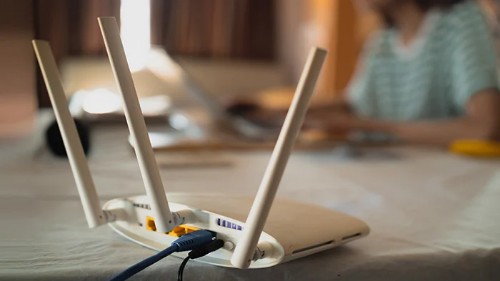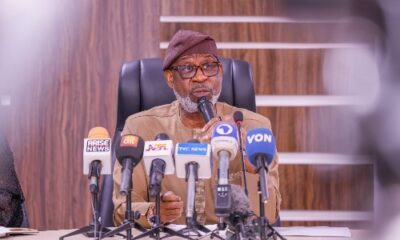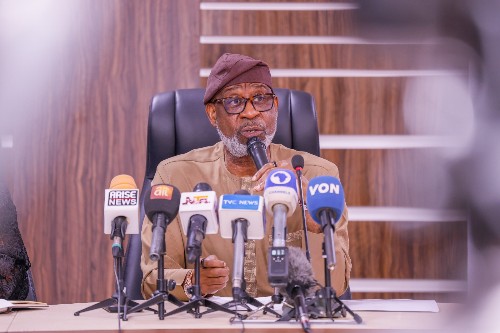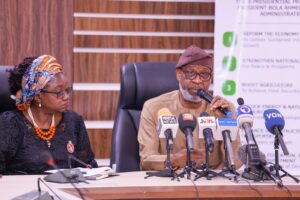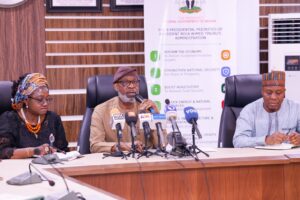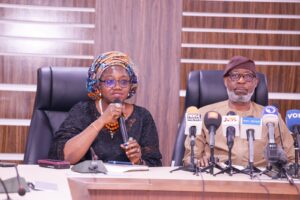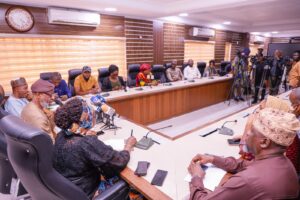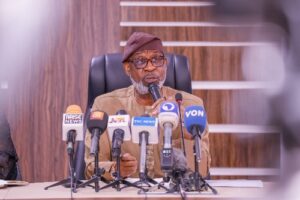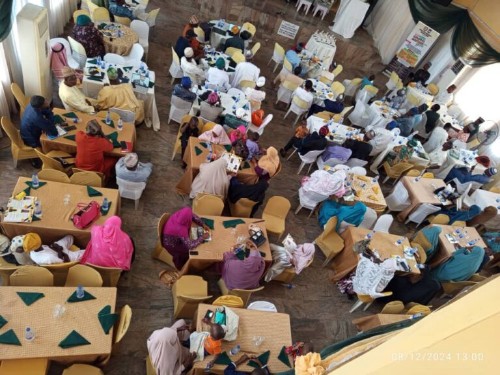The Nigerian Communications Commission (NCC) is planning to deploy the 6G spectrum in Nigeria to expand access to Wi-Fi technology.
Aminu Maida, executive vice-chairman of NCC, spoke on Thursday about efficiently managing and utilizing spectrum resources at a consultative engagement forum focused on emerging technologies.
Tagged, ‘The Use of 6GHz (5925-7125) MHz for WiFi and IMT Applications in Nigeria’, the forum was held in Lagos to get stakeholders’ input and recommendations on how the new frequency can be used.
The NCC also said the forum, held annually, serves as a platform to get the support of stakeholders for its policies.
In his opening remarks, Maida, represented by Abraham Oshadami, executive commissioner of technical services at the commission, said existing spectrums (5G and 2G) are becoming overcrowded, hence the need to introduce other frequency bands.
“The 6GHz band, spanning from 5925 MHz to 7125 MHz, offers a substantial increase in available spectrum, which is crucial for supporting the growing demand for high-speed internet and advanced applications.
Wi-Fi plays a crucial role in the distribution of fixed broadband connectivity in homes, offices, and various other environments,” Maida said.
“The vast majority of home internet traffic is connected to the end-user through Wi-Fi.
In enterprise settings, Wi-Fi is essential for handling large amounts of data and simultaneously connecting large numbers of devices with improved reliability, higher data throughput, and lower latencies.
“However, the 5GHz and 2.4GHz that are being used for Wi-Fi (Wi-Fi 5) at the moment are becoming overwhelmed due to an increase in demand for capacity.
It is, therefore, imperative to identify other frequency bands to complement the 5GHz and 2.4GHz.”
Speaking on the benefits, Maida said the proposed frequency would increase capacity, allowing for the use of applications such as virtual reality, augmented reality, which existing spectrums “will not carry”.
“With Wi-Fi 6 introduction, you have more capacity opened up for people to be able to connect and have seamless access to Wi-Fi and remember, this is unlicensed, so it is free.
In the long run, it’ll bring down the cost of connecting to Wi-Fi.”
Caroline Alenoghena, a professor of telecommunications engineering at the Federal University of Technology, Minna, said the introduction of a new spectrum is necessary to address the congestion in the present Wi-Fi frequencies.
The professor said opening up the 6G band would create “opportunities for start-ups to grow” in terms of providing digital services.
On his part, Tony Emoekpere, president of the Association of Telecommunications Companies of Nigeria (ATCON), said the 6G spectrum — if properly allocated — would allow more diverse technologies to be deployed.
Emoekpere said it would also democratise access to the urban, semi-rural, and rural areas.
“Foreseeable challenges are things like infrastructure requirements, the whole of investment that’s required, competing technologies, because some of these technologies are still being developed,” the ATCON president said.

 BIG STORY5 days ago
BIG STORY5 days ago
 BIG STORY3 days ago
BIG STORY3 days ago
 BIG STORY4 days ago
BIG STORY4 days ago
 BIG STORY5 days ago
BIG STORY5 days ago
 BIG STORY5 days ago
BIG STORY5 days ago
 BIG STORY4 days ago
BIG STORY4 days ago
 BIG STORY4 days ago
BIG STORY4 days ago
 BIG STORY3 days ago
BIG STORY3 days ago




